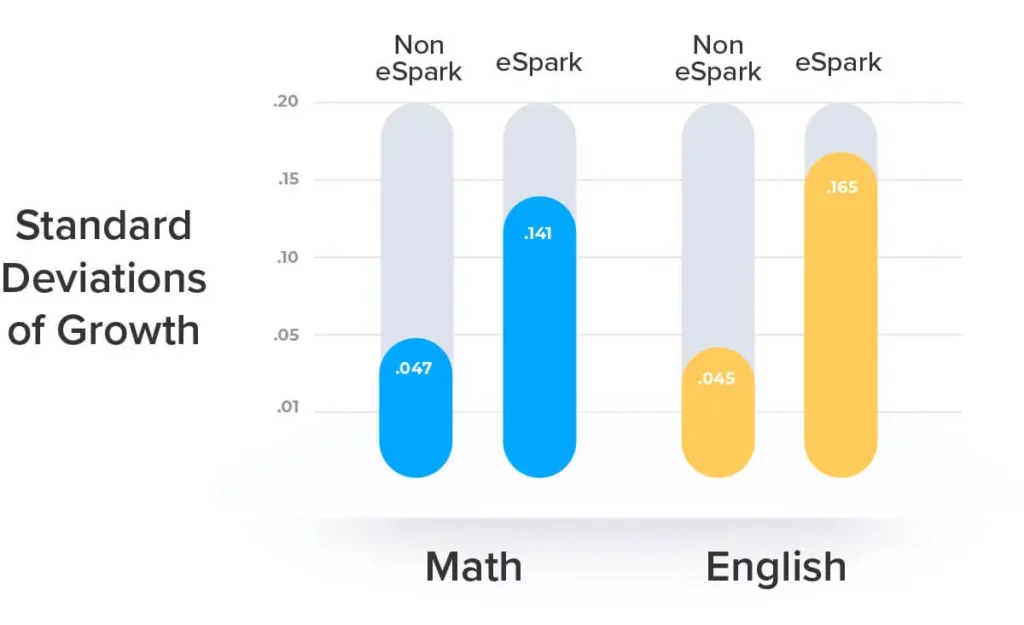Abstract
The existing body of research on personalized learning indicates that instructional differentiation is most effective when core instruction is enriched with high-frequency personalized lessons. In this study, the research found that the use of eSpark, an adaptive, online supplemental curriculum resource, had a statistically significant positive impact on reading and math achievement among middle school students in two Boston charter schools.
Students who spent time in eSpark scored .141 standard deviations higher in math and .165 standard deviations higher in reading on their quarterly exams.

Background
Dr. Elizabeth M. Setren, Assistant Professor of Economics at Tufts University, sought to better understand the effectiveness of educational technology during her doctoral studies at MIT.
Methodology
For this study, middle school students at two Boston charter schools were randomly assigned to either a treatment group or a control group classroom. The treatment group used eSpark for 28 minutes a day, four days a week, for three-fourths of the school year — the control group met in a separate classroom during this time to receive supplemental teacher-led instruction. In addition, one school fully implemented eSpark while the other partially implemented it.
Results and Significance
The school that fully implemented the eSpark program saw that using eSpark less than 2 hours a week boosted students’ math scores nearly as much as an intensive intervention. Though both the treatment and control groups’ math test scores surpassed the state mean, students who spent time in eSpark scored 0.141 standard deviations higher overall on their quarterly exams. eSpark students also showed significant improvement on the quarterly reading exam, on which students who used eSpark scored 0.165 standard deviations higher.
Additionally, students who used eSpark had significantly lower rates of tardiness and in-school suspension compared to their peers. These results were seen across different demographics and baseline abilities, evidence that eSpark affects all students similarly and generates gains by personalizing the lessons to individual students’ needs.
Request more information about eSpark and related research on our contact us page.
← Go back to eSpark’s research and evidence base overview